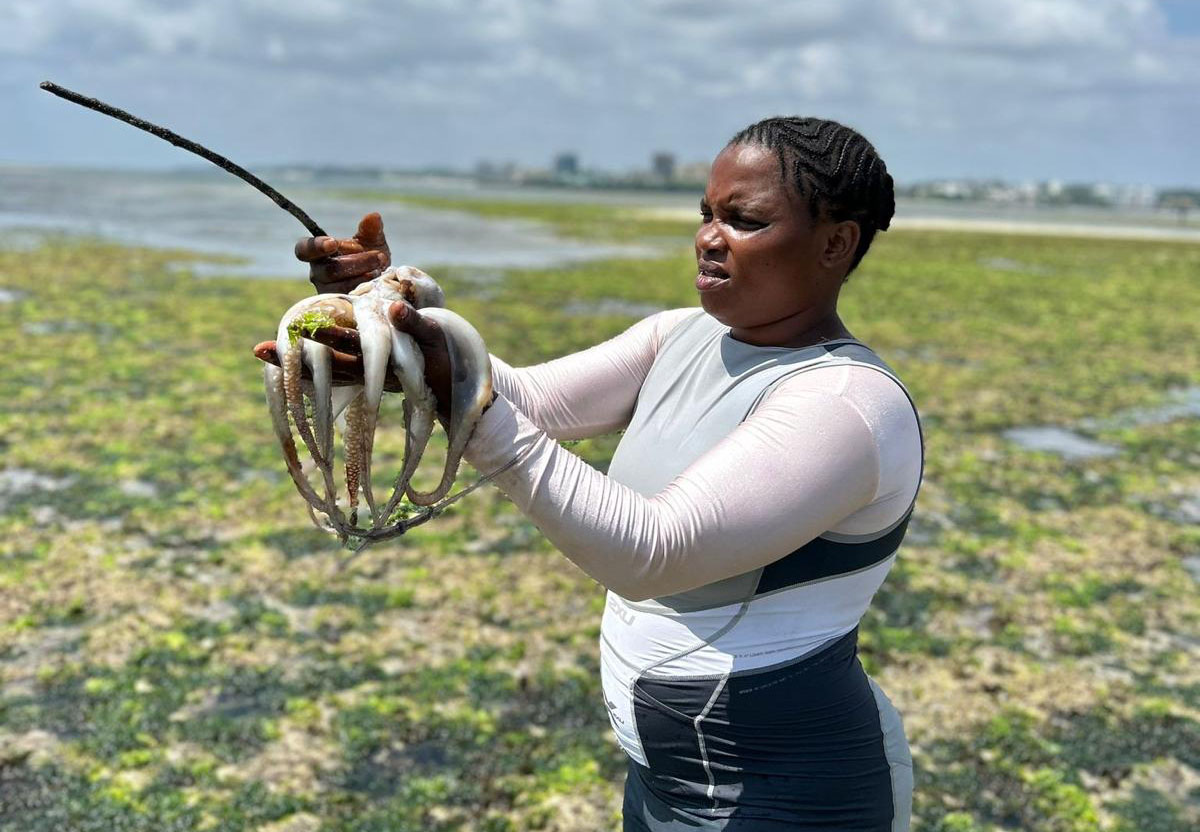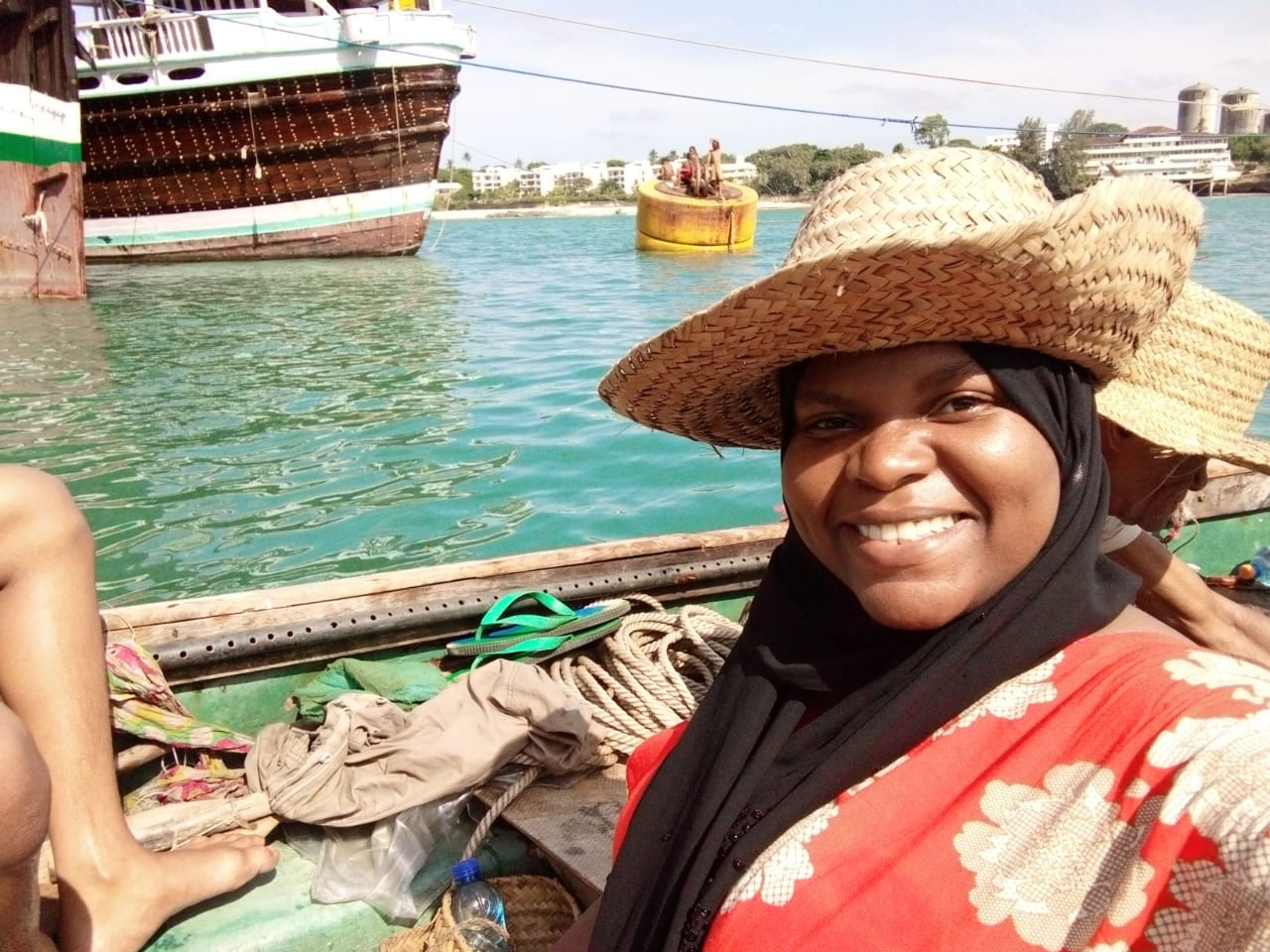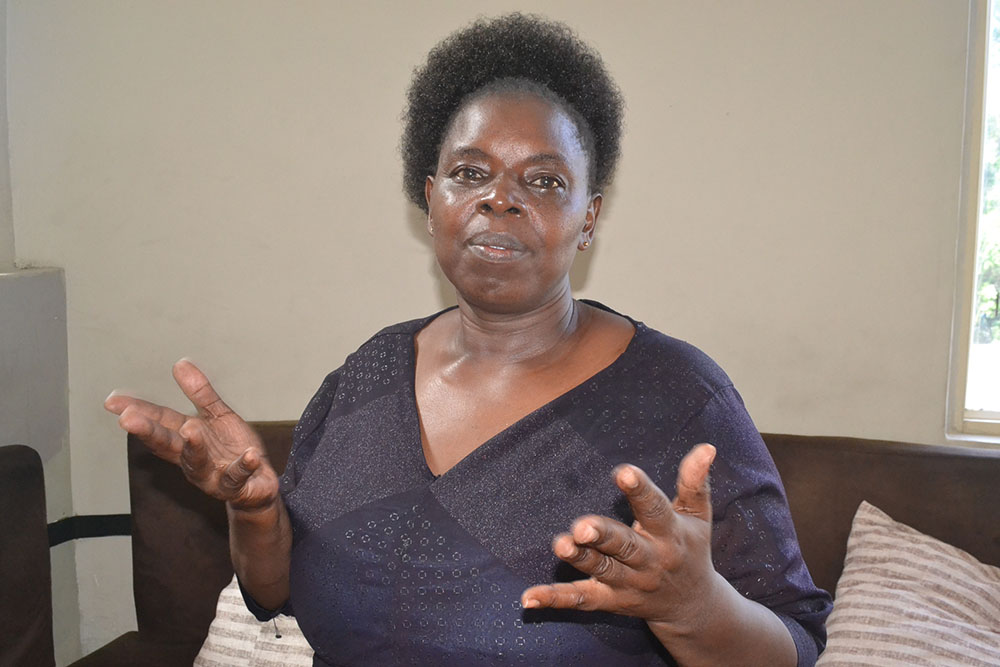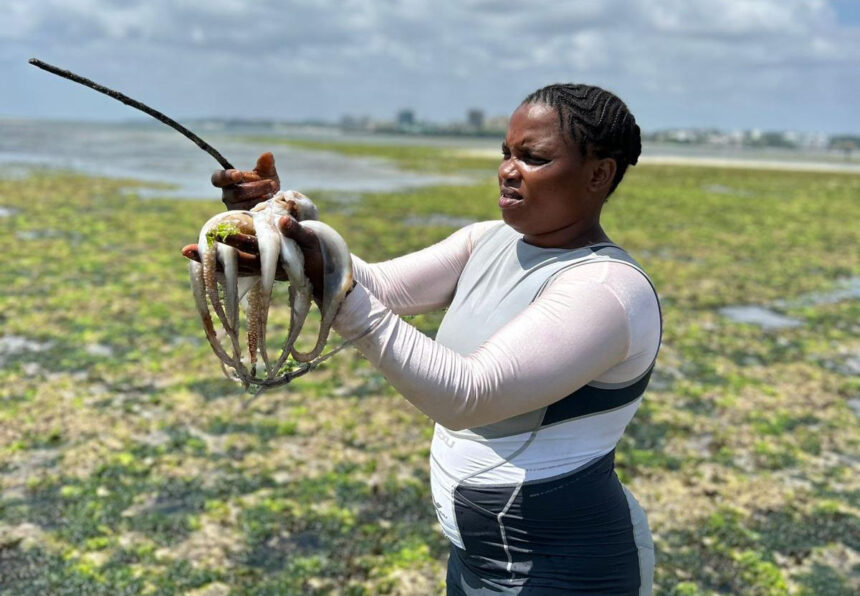
By Jasmine Atieno
@sparkleMine
For decades, women at the Kenyan coast have kept away from the deep waters. Taboos, both cultural and religious, banned them from fishing, forcing them to wait at the shores to buy fish, both raw and processed for resale at the markets.
“There used to be a lot of beliefs about women going to the ocean. For instance, they were afraid that some women would go into the water on their periods, and a jinni would enter her body. So most women would wait for the fishermen to bring back and we would buy from their catch,” shares Joyce Mramba, the Co-Founder of Tuna Women Group in Kipini, Tana River.
But things are changing. High poverty levels within the area drove most female fish vendors into transactional sex for fish. Anyone who does not do this would go home with nothing. This is where Joyce came in.
In 2012, she mobilised five other women and together, they decided to fish for prawns. Fortunately, they did not need classes to fish prawns since they had watched how the men did it. Besides, this type of fishing did not require them to go deep into the sea. Prawns do a nightly vertical migration to shallower waters at night to find prey, returning to deeper water at sunrise to hide from predators. They also migrate seasonally to breed. The best time to catch them is very early in the morning and evening when they come out to feed.

Done twice a day, the fishing yields over 50 Kgs of prawns, which fetches Sh200 (USD 1.4) per kg.
“Prawns are highly preferred here and by late evening everything will be sold out. In fact, there are customers who will not get anything if they come late,” shares the business woman.
The group has since grown with 35 members, performing different tasks aimed towards empowering the women fishers group.
“Most fishermen were not very receptive to our development. Some felt we were rebelling against Islamic beliefs. To iron this out, we had to come into certain agreements such as making commitments that we wouldn’t go fishing while on our periods, and do what we need after the cycle before going back to fishing. And slowly they started accepting us,” shares Joyce.
She is also a peer influencer in Kipini, creating awareness on HIV/Aids infections among the fisherfolk at the Coast.
“A few years back, the fishermen, most of whom were contracted by big boat owners, would deliver all the catch to the boat owners, who would set high prices on the fish. This left the women desperate and some were willing to go all the way to trading their bodies. This translated to an increase of HIV/Aids infections in Kipini. But since the group of women fishers started, I have been talking to the men, showing them that this new development is a win for all of us, and their families as well,” she explains.

Mercy Mghanga, Chairperson of Beach Management Unit, and a member of the Coastal women in fisheries, an organization that represents women in fisheries at the Coast of Kenya, urged that women fishers be supported with better fishing equipment to increase their yield.
“As women, we have not been fully empowered to create employment opportunities for ourselves. We have not been enabled enough to fish to our best capacity. It’s true that the government started an initiative to train about 1,000 fisher folk every year, and yes some have been trained but still do not have the right fishing equipment,” shares Mercy.
Aside from fishing, the women at the Coast are also getting more involved in decision making processes, taking up elective seats because they also have the capacity to advocate for their rights. Speaking on this shift in the fisheries industry, Chairman, South West Indian Ocean Tuna Forum (SWIOTUNA), Hadley Becha, says that there is need to have more capacity building initiatives and mentorship programs to fully achieve this.
“More efforts are being put in place to build the capacities of women in different areas, including legal frameworks supporting fisheries governance and management, fisheries handling and hygiene, resource mobilization financial management and also supporting women in exchange visits for peer to peer learning, but there is definitely need for more initiatives for empowerment,” said Becha.
This change of things has also improved the relationship with the men fishers who were previously their opposers.
“Most fishermen used to have a problem with women fishing but the situation is not the same today. We see how this is beneficial to the family as well. The women are able to provide financial support in the family,” shares Somo Somo, a local fisherman and boat owner.









